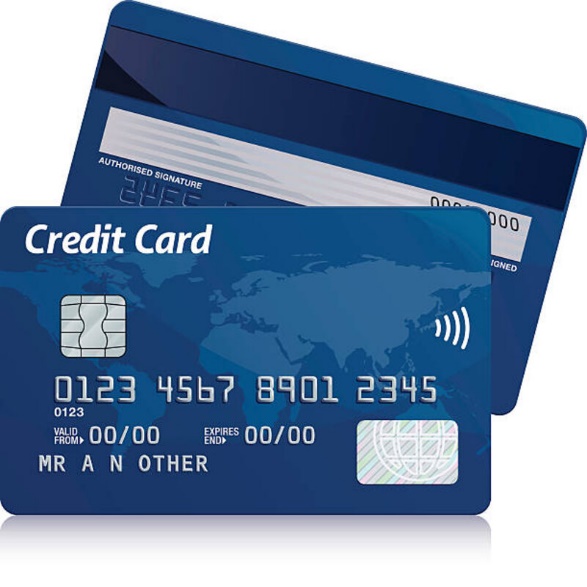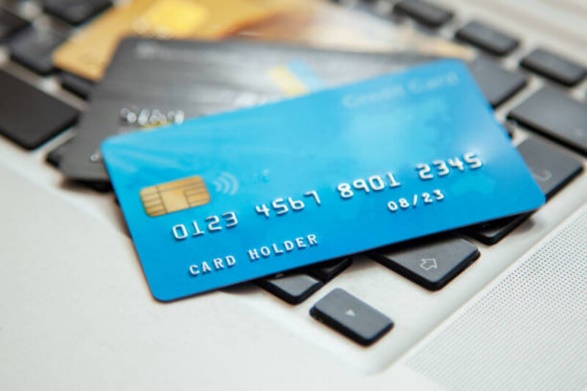Do you know the ins and outs of your credit card number? Are you aware of which numbers are essential to secure a safe purchase or how certain digits can determine if it is a valid card? Understanding and protecting your credit card number is more important than ever, with scammers constantly looking for ways to steal money from unsuspecting individuals. In this blog post, we’ll be delving into what makes up a valid credit card number, as well as best practices for keeping yours secure.
So whether you need assistance understanding the specifics about which numbers make up your own personal information or just want an overview on why identifying scams/fraudulent activity is so critical - keep reading!
Understanding Credit Card Numbers and How They Work?

Credit cards have become an essential part of our financial lives. But have you ever wondered what the numbers on your credit card mean? Each number on a credit card represents different information that is used to identify the issuer, your account number, and security measures.
- The first six digits of a credit card show the bank identification number, which identifies the bank that issued the card.
- The next set of numbers indicates your account number and the last digit is a security number used to verify the authenticity of the card.
Understanding credit card numbers can be confusing, but it is crucial to protect yourself against credit card fraud. Knowing how credit card numbers work can also help you identify any suspicious activity and report it to your issuer before it becomes a bigger problem.
Benefits of Keeping Your Credit Card Number Secure
In today's digital age, credit card fraud is becoming a common issue among consumers. Keeping your credit card information secure can not only save you money but also protect you from identity theft. By regularly checking your statements and avoiding sharing your personal information, you can minimize the risk of unauthorized charges on your credit card.
Additionally, most credit card companies offer zero liability protection against fraud, which means you won't be held responsible for any fraudulent transactions. Taking these precautionary measures can provide peace of mind and keep your finances safe and secure.
How to Choose a Secure Payment Processor?
In today's digital world, choosing a secure payment processor is crucial for businesses and individuals alike. It can be challenging to navigate the world of payment processing, with various options available on the market. However, taking the time to choose the right payment processor can make all the difference, protecting your sensitive financial information and making transactions smoother and more secure.

A good payment processor should have strong encryption methods, fraud detection tools, and compliance with industry standards. It's also essential to consider factors such as ease of use, fees, and customer support when making your decision. By doing your research and taking the necessary precautions, you can ensure that your payments are processed safely and securely.
What to Do If You Suspect Fraudulent Activity on Your Credit Card?
Discovering suspected fraudulent activity on your credit card can be alarming, but it's important not to panic. The first step is to contact your credit card issuer immediately to report the fraudulent transactions. They will likely cancel your current card and issue a new one with a new account number. It's also important to review your account statements regularly to monitor for any unauthorized activity.
Additionally, if you believe your personal information has been compromised, it's a good idea to place a fraud alert on your credit report and notify the credit bureaus. Remember to always keep an eye out for potential fraudulent activity and report any suspicious charges as soon as possible to protect yourself from further damage.
Why You Should Always Double-Check the Last Digit on Your Credit Card Number?
It's easy to be careless when it comes to entering your credit card information online. We've all been there - rushing to complete a purchase or caught up in the excitement of a sale. But taking just a few extra seconds to double-check the last digit of your credit card number could prevent a headache down the line. One wrong number and your payment might not go through, or worse, be charged to someone else's account. While it may seem like a small detail, it's worth taking the time to ensure that you're entering your information correctly.
Conclusion:
Keeping your credit card number secure is a must in today’s world of online shopping and transfers. Understanding how to choose a secure payment processor, as well as the importance of closely monitoring account activity for suspiciuos charges, can help protect you against fraud. Furthermore, it's wise to avoid sharing credit card numbers with merchants or people you don't know - even if it looks legitimate. Lastly, always double-check the last four digits of your credit card number when making purchases to further guarantee that the details are correct. Taking these steps can help ensure that your accounts remain safe and secure, while also making sure that you don’t fall prey to cyber criminals out to steal your hard-earned money and personal information.
FAQs:
Q1: What are the first six digits of a credit card?
A1: The first six digits of a credit card show the bank identification number, which identifies the bank that issued the card.
Q2: How can I protect my credit card information online?
A2: There are several best practices you can employ to protect your credit card information online, including using strong passwords, avoiding sharing your personal information with merchants or people you don’t know, and double-checking the last four digits of your credit card number when making payments. Additionally, most payment processors offer fraud detection tools, which can help monitor for any suspicious activity on your account.




